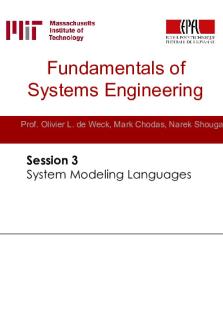ENGL100 Lecture 3 PDF

| Title | ENGL100 Lecture 3 |
|---|---|
| Course | University Writing Strategies |
| Institution | Capilano University |
| Pages | 2 |
| File Size | 126.8 KB |
| File Type | |
| Total Downloads | 56 |
| Total Views | 127 |
Summary
Class Lecture Notes (reading discussions and analysis) for University Writing Strategies taught by Prof. Kenneth Huynh...
Description
Overview •
Joan W. Scott’s “The Evidence of Experience: What Is Important and Why Is It Important
•
Your Personalized Summaries and Other Types of Writing – What You Should Consider
Joan W. Scott: The Evidence of Experience •
Is an American historian of France, with particular interests in gender, feminist theory and post-structuralism – a branch of theory that is interested in how language structures understanding and articulation
•
This article is an example of historiography – a piece of writing that examines what’s at stake when we conceptualize, understand and record history in certain ways – with certain assumptions and certain goals, for example
•
What Is It: A critique that argues against using ”experience” as an unexamined category of analysis in research, historical or otherwise
•
What Does She Do: Analyzes a series of foundational critical leftist texts, which assume and utilize experience as an unassumed truth outcome – as “evidence”, point-of-fact, without interrogation
•
How Does She Do It: Provides close readings of these texts, assessing how and why each privilege ”experience” as a marker of “evidence”
•
Argues: Rather than simply assuming experience is evidence, scholars (and by extension, students) need to interrogate what are the sociohistorical and political conditions that allow and compel to people to understand their lives as such.
•
So: Not a dismissal of experience as evidence, but rather a call to examine what makes it possible to articulate an experience as Black, Working-Class, Woman, etc. To examine the terms of understanding evidence.
•
If you don’t do this, there’s a danger of essentialism – “We’re all like this” or dismissal “You’re just saying that because you’re [. . .]” – which is precisely what anyone who thinks doesn’t want.
Critical Literacy = Better Writing 1) Consider the source. Who’s the writer? 2) Evaluate the source. Does it seem reputable? 3) Investigate the source. Can you corroborate the findings?
Recognizing Context and What Claims Do • • •
The political and historical background against which you write and speak matters. It influences how people interpret, understand and make use of the things that you say. Words have Denotative and Connotative Meaning. Denotative means literal definition. Connotative means associated, social meaning. Denotation and connotation create understanding and consequently action. Knowledge is made. When you make a claim, you’re making knowledge.
Understanding and Defining Your Terms • •
Because of this, it is necessary to understand and to define your terms. Simply put, words and ideas have baggage. They are not neutral. This doesn’t mean that you cannot say anything. But this is saying that you should be careful. Because again – people make use of the things that people say. A careful writer is a better writer....
Similar Free PDFs

ENGL100 Lecture 3
- 2 Pages

Lecture notes, lecture 3
- 8 Pages

Lecture notes, lecture 3
- 5 Pages

Lecture notes, lecture 3
- 59 Pages

3 - Lecture notes 3
- 7 Pages

Lecture 3
- 3 Pages

Lecture 3
- 2 Pages

Lecture 3
- 2 Pages

Lecture 3
- 22 Pages

Lecture 3
- 4 Pages

Lecture 3
- 22 Pages

Lecture 3
- 6 Pages

Lecture Notes, Lecture Exam 3
- 15 Pages

LECTURE 3 Management lecture notes
- 35 Pages
Popular Institutions
- Tinajero National High School - Annex
- Politeknik Caltex Riau
- Yokohama City University
- SGT University
- University of Al-Qadisiyah
- Divine Word College of Vigan
- Techniek College Rotterdam
- Universidade de Santiago
- Universiti Teknologi MARA Cawangan Johor Kampus Pasir Gudang
- Poltekkes Kemenkes Yogyakarta
- Baguio City National High School
- Colegio san marcos
- preparatoria uno
- Centro de Bachillerato Tecnológico Industrial y de Servicios No. 107
- Dalian Maritime University
- Quang Trung Secondary School
- Colegio Tecnológico en Informática
- Corporación Regional de Educación Superior
- Grupo CEDVA
- Dar Al Uloom University
- Centro de Estudios Preuniversitarios de la Universidad Nacional de Ingeniería
- 上智大学
- Aakash International School, Nuna Majara
- San Felipe Neri Catholic School
- Kang Chiao International School - New Taipei City
- Misamis Occidental National High School
- Institución Educativa Escuela Normal Juan Ladrilleros
- Kolehiyo ng Pantukan
- Batanes State College
- Instituto Continental
- Sekolah Menengah Kejuruan Kesehatan Kaltara (Tarakan)
- Colegio de La Inmaculada Concepcion - Cebu

